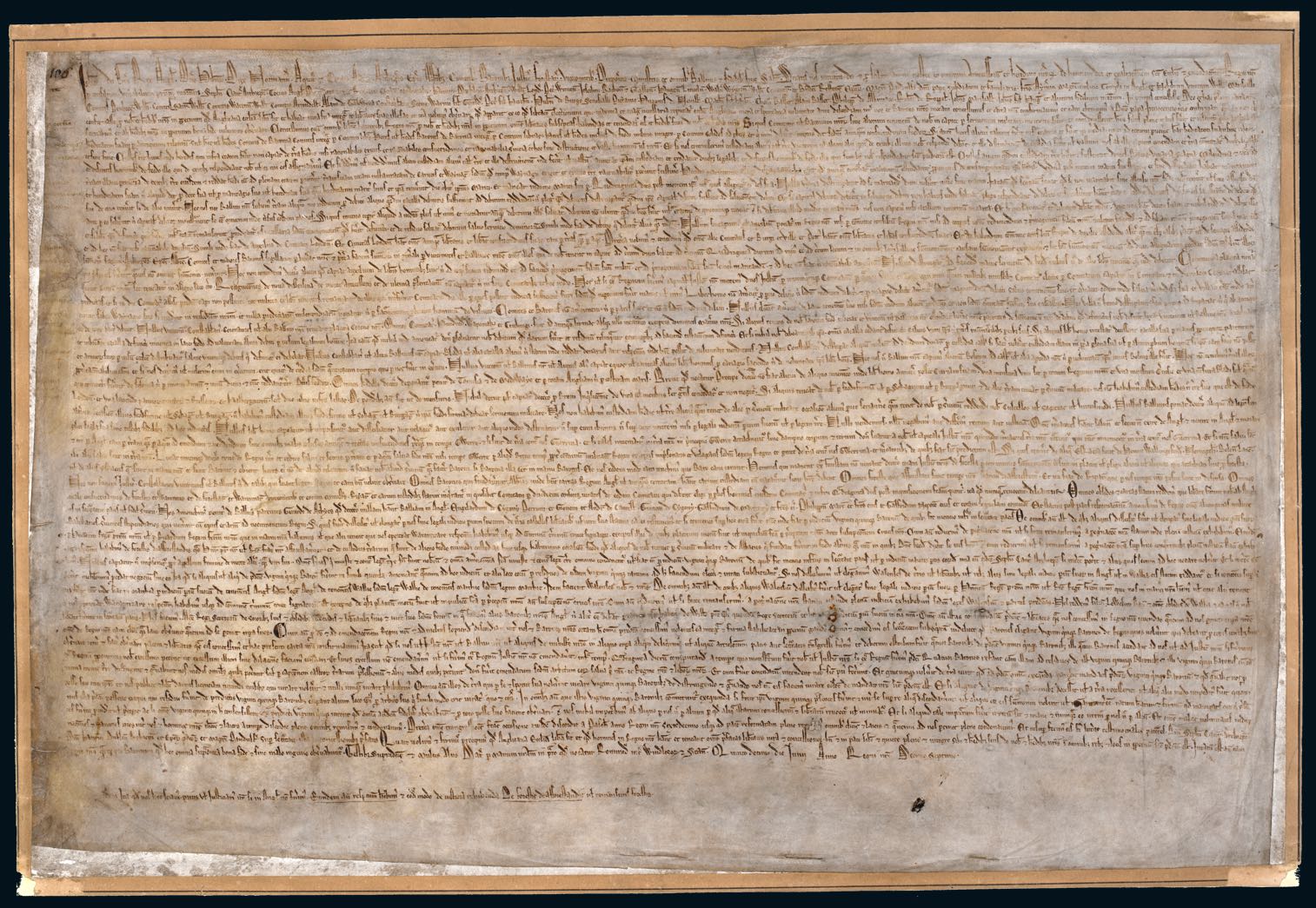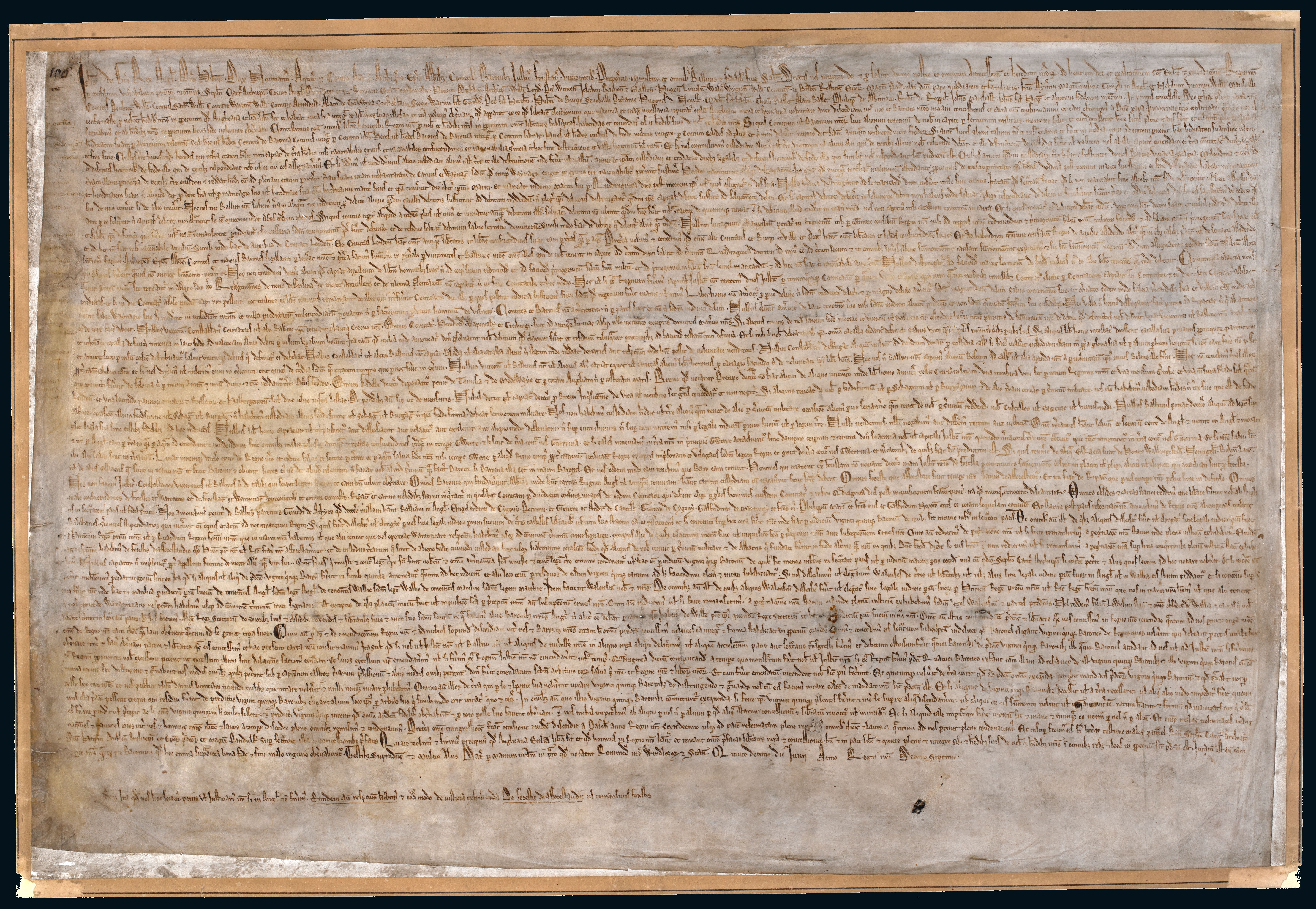
Quare volumus et firmiter precipimus quod Anglicana ecclesia libera sit et quod homines in regno nostro habeant et teneant omnes prefatas libertates iura et concessiones, bene et in pace, libere et quiete plene et integre sibi et heredibus suis de nobis et heredibus nostris in omnibus rebus et locis in perpetuum sicut predictum est. Iuratum est autem tam {ex} parte nostra quam ex parte baronum, quod hec omnia supradicta bona fide et sine malo ingenio observabuntur.
IT IS ACCORDINGLY OUR WISH AND COMMAND that the English Church shall be free, and that men in our kingdom shall have and keep all these liberties, rights, and concessions, well and peaceably in their fullness and entirety for them and their heirs, of us and our heirs, in all things and all places for ever. Both we and the barons have sworn that all this shall be observed in good faith and without deceit. Witness the above-mentioned people and many others. Given by our hand in the meadow that is called Runnymede, between Windsor and Staines, on the fifteenth day of June in the seventeenth year of our reign.
